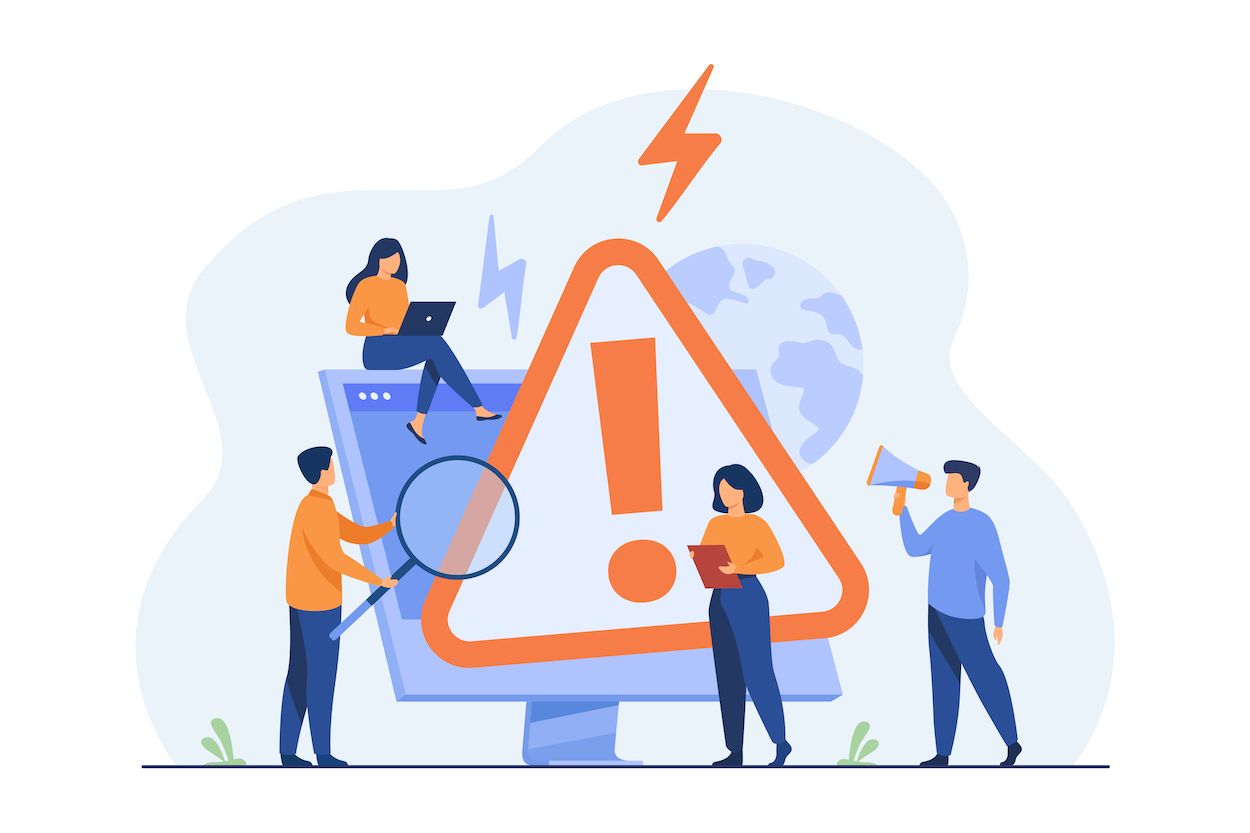- April 8, 2023
- by Nina
- Link Building
- 0 Comments
As a business owner, you understand the importance of link building for your website’s online presence. Backlinks from high-quality websites can improve your search engine rankings and drive more traffic. However, it requires a strategic approach to avoid common mistakes that harm your website’s credibility and reputation.
In this article, we’ll share the most common link building mistakes you must avoid in 2023. By the end of this article, you’ll better understand what not to do when building backlinks to your website. You can implement tactics to improve your website’s search engine optimization (SEO) and online visibility. So, let’s dive in and explore these common link building mistakes together. Then, keep scrolling to learn more!
Ignoring On-Page SEO
One of the biggest mistakes in link building is ignoring on-page SEO. On-page SEO refers to optimizing your website’s content and structure to improve your search engine rankings. If your website’s on-page elements, such as page titles, meta descriptions, and headers, need to be optimized, it can hurt your chances of ranking well in search engine results pages (SERPs).
Conduct a thorough on-page SEO audit to avoid this mistake and optimize your website’s elements accordingly. Pay attention to keyword research and use relevant keywords throughout your content, but avoid keyword stuffing, which can negatively impact your website’s rankings. Additionally, ensure your website’s structure is easy to navigate, mobile-friendly, and has fast loading times. By prioritizing on-page SEO, you can create a strong foundation for your link building efforts and increase your website’s visibility in search engine results.
Producing Low-Quality Content
One of the most significant factors that influence the success of your link building efforts is the quality of your content. Unfortunately, producing low-quality content is one of the most common mistakes new website owners make to link building. It’s important to remember that when other websites link to your content, they’re essentially endorsing it. If your content needs to be better written or relevant to their audience, they’re unlikely to link to it.
Producing high-quality content relevant to your target audience is crucial to avoid this mistake. This means investing time and effort in thorough research, creating engaging visuals, and providing valuable insights or information. You should also ensure your content is error-free, readable, and formatted correctly.
Remember that link building aims to create valuable relationships and earn backlinks from high-quality websites. High-quality content increases your chances of attracting links naturally rather than relying on spammy tactics.
Ignoring User Intent
When it comes to link building, it’s essential to keep the user’s intent in mind. If you’re only focused on building links for search engines, you’re missing out on a crucial part of the puzzle. Users are the ones who will ultimately be clicking on your links and visiting your website, so it’s vital to understand what they’re looking for.
One of the most common mistakes businesses make is building links to pages that don’t match the user’s intent. To avoid this mistake, create high-quality content that meets the user’s intent and provides value. You should also research your target audience and understand their pain points and interests to create content that resonates with them. For example, suppose a user is searching for information on fixing a leaky faucet. In that case, they will be interested in something other than clicking on a link to a page selling plumbing services.
To avoid this mistake, ensure the content on the page you’re linking to aligns with the user’s intent. If the user searches for information, link to a helpful article or blog post. If they want to purchase, link to a product or service page. By understanding and meeting the user’s intent, you’ll improve your link building strategy and provide a better experience for your visitors.
Relying Heavily on Third-Party Metrics
One common mistake in link building is relying too heavily on third-party metrics, such as Domain Authority (DA) or Domain Rating (DR), to judge the value of a link. While these metrics can indicate a site’s authority and trustworthiness, they shouldn’t be the only factors you consider.
For example, a site with a high DA and DR may still have low-quality content or be irrelevant to your niche. Additionally, these metrics are prone to manipulation and may not accurately reflect a site’s value.
Instead of relying solely on third-party metrics, take the time to evaluate each potential link opportunity manually. Look at the site’s relevance to your niche, content quality, and audience engagement. Building links from high-quality, relevant sites will benefit your SEO and drive more targeted traffic.
Disregarding Nofollow Links
Nofollow links are essential to any link-building strategy, yet they are often overlooked. These links do not pass on link equity or PageRank, but they can still be valuable for driving traffic to your website and building brand awareness. Ignoring nofollow links can be a huge mistake, as it limits your site’s potential sources of backlinks.
When building links, it’s essential to have a mix of dofollow and nofollow links. Nofollow links can still provide value in referral traffic and help improve your online reputation. They also signal to search engines that your website has a natural backlink profile, which can improve your overall search engine rankings.
Therefore, it’s essential to refrain from dismissing nofollow links and to actively seek them out as part of your link building efforts. You can gain nofollow links from various sources, including social media, forums, and blog comments. When building these links, focus on providing value to the community and engaging with others rather than solely trying to gain a link.
Overusing Exact Match Anchor Text
Overusing exact match anchor text is another common mistake that can harm your website’s search engine rankings. An exact match anchor text refers to the clickable text that appears in a hyperlink and is identical to the target keyword or phrase. While using relevant keywords in anchor text can improve your SEO, repeatedly using the same keyword can trigger Google’s algorithmic penalties and lead to lower rankings.
To avoid this, use variations of the target keyword in the anchor text, including synonyms, related phrases, or even generic terms. This will make your link profile look more natural and diverse and help search engines understand the context of your content.
For example, here’s the anchor profile of Ahrefs, which has a nice anchor text variety:
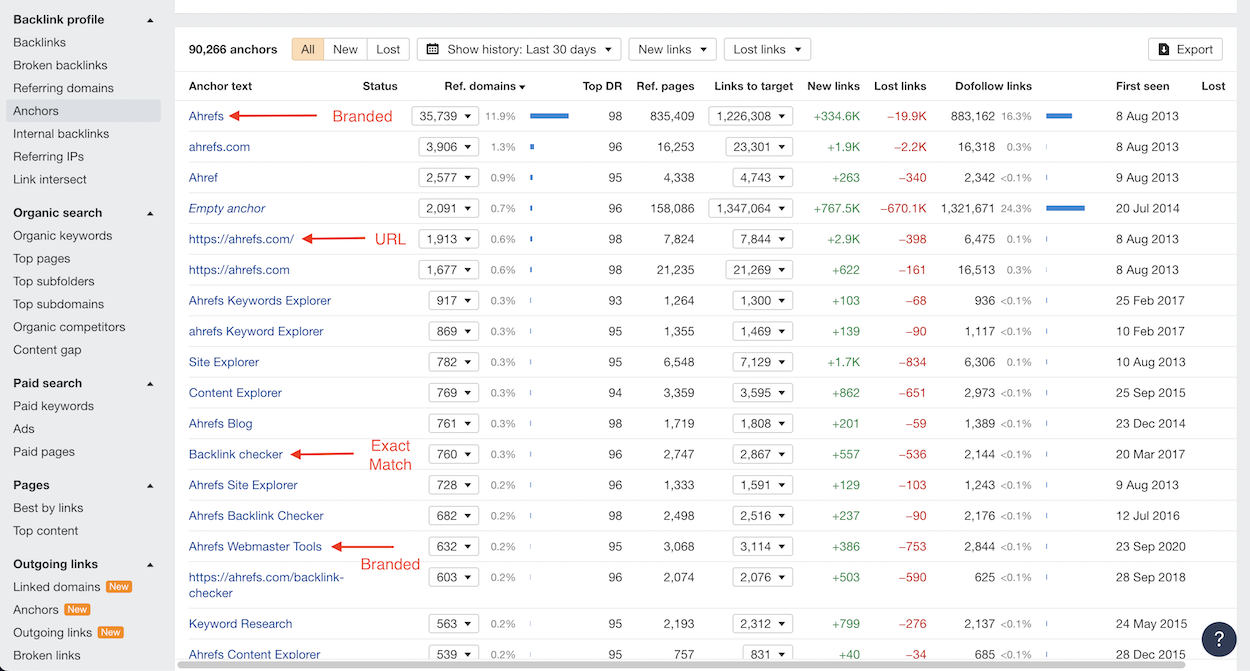
Focusing on Quantity of Backlinks Than Quality
While backlinks are essential for improving your website’s ranking, focusing on quality over quantity is necessary. Having many backlinks won’t necessarily improve your search engine rankings, especially if they are low-quality or spammy.
Instead, focus on acquiring high-quality backlinks from reputable sources in your industry. These links will improve your search engine rankings and bring valuable traffic to your website. Quality backlinks can come from industry publications, trusted bloggers, and authoritative websites.
Regarding backlinks, it’s not just about the number of links you have but also the quality of those links. Avoid purchasing backlinks or engaging in link schemes, as this can lead to penalties from search engines. Instead, focus on building a solid network of quality backlinks through genuine outreach and relationship-building efforts.
Repetitively Linking to the Same Web Page
Linking repeatedly to the same web page can lead to artificial inflation of the page’s perceived authority, ultimately harming your website’s ranking. When search engines see that your website is linking excessively to the same page, they may interpret this as an attempt to manipulate the ranking algorithm, resulting in a penalty.
Moreover, repeating the same link multiple times in a single article or page can result in a poor user experience. It may appear spammy to readers and can be frustrating when they are trying to find different sources of information. Instead, link to various pages that provide valuable information and context for your audience.
Linking to irrelevant or low-quality pages can damage your website’s ranking. Therefore, linking only to pages relevant to your content and providing value to your audience is essential.
In summary, it’s best to avoid repetitive linking to the same page and focus on providing a variety of high-quality and relevant links for your readers. This approach will help your website rank better in search engines and provide a better user experience for your audience.
Purchasing Links From Low-Quality Sites or Link Farms
Another common mistake people make when building backlinks is purchasing links from low-quality sites or link farms. Link farms are websites that exist solely to create backlinks, and they often have little or no actual content. They may also use black hat SEO techniques to artificially inflate their PageRank and make it look like they have more authority than they do.
By purchasing links from these sites, you are wasting your money and putting your website at risk of being penalized by search engines. When search engines detect that you are using manipulative tactics to build backlinks, they can impose severe penalties, including de-indexing your website from their search results entirely.
To avoid this mistake, it would always help build links from high-quality sites with relevant and valuable content. These sites are much more likely to provide long-term benefits in increased traffic and higher search engine rankings. So, instead of purchasing links, invest your time and resources in creating valuable content that other websites will want to link to naturally.
Here are examples of low-quality sites or PBN sites that you should avoid at all costs:
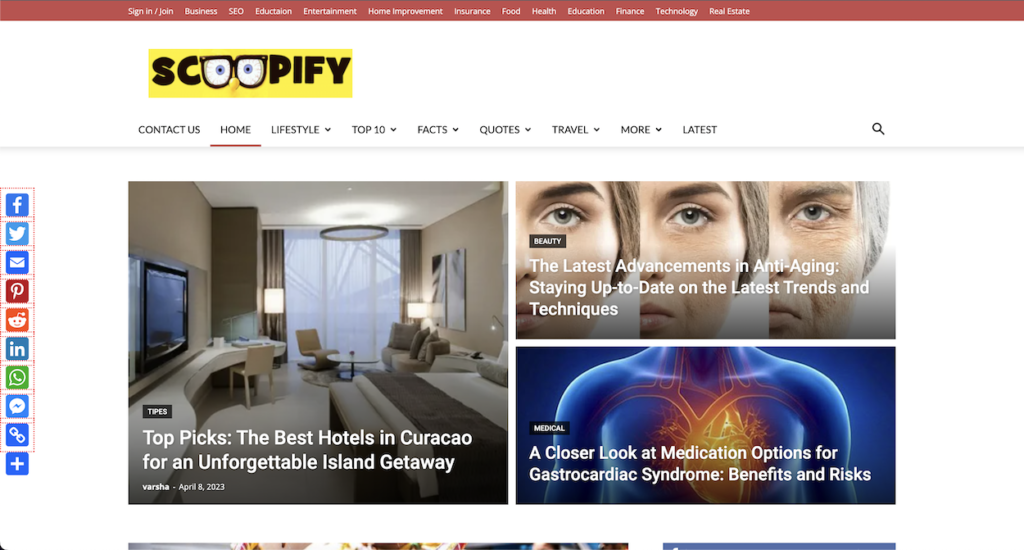

Building Irrelevant Links
Building relevant links can also help your website’s SEO. Irrelevant links come from websites without relevance to your niche or content. For example, if your website is about dog grooming, getting links from websites about car maintenance or fashion would be irrelevant.
These links might look suspicious to search engines, and they can penalize your website’s ranking accordingly. Even worse, if you have too many irrelevant links, search engines might label your website as spam and block it.
To avoid building irrelevant links, focus on getting links from relevant websites. You can use tools to analyze a website’s content and niche to ensure that it’s relevant to your website. It’s also essential to create high-quality content relevant to your niche to attract links from other relevant websites naturally. Finally, avoid buying links or resorting to other shady tactics, ultimately harming your website’s SEO in the long run.
Ineffective Blogger Outreach
One of the most effective ways to build high-quality backlinks is through blogger outreach, which involves reaching out to bloggers and convincing them to link back to your site. Unfortunately, many businesses need to start using effective tactics when approaching bloggers. For example, sending generic emails that don’t offer any value to the blogger won’t yield any results.
To succeed with blogger outreach, you must engage with bloggers and provide them with valuable content. This could include offering to write a guest post for their blog, providing complete information, or giving them early access to a product or service.
In addition, it’s essential to personalize your outreach emails and show the blogger that you have taken the time to understand their blog and their audience. This will increase the likelihood that they will be willing to work with you and link back to your site.
Effective blogger outreach requires personalized communication, valuable content, and a genuine effort to build a relationship with the blogger. By avoiding generic outreach tactics and instead investing in building authentic relationships, you can create high-quality backlinks that will improve your site’s search engine rankings.
For example, we launched a campaign about educational games kids can play during the pandemic and we were able to land some cool links. Here’s the outreach template we used:
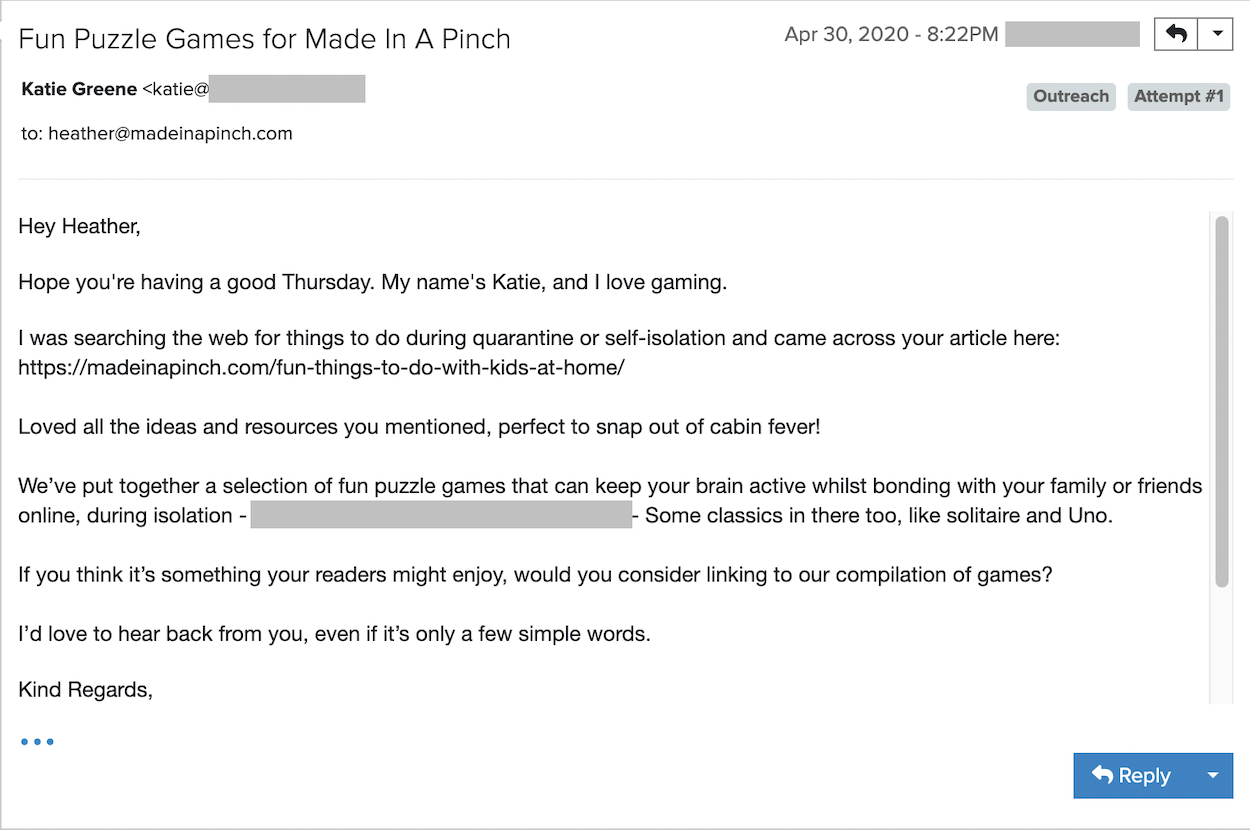
Failing to Build and Nurture Relationships
One of the most important aspects of successful link building is building and nurturing relationships with website owners, bloggers, and influencers in your industry. Unfortunately, many businesses fail to prioritize relationship-building and instead focus solely on acquiring as many links as possible.
Building relationships takes time and effort, but the benefits can be enormous. By developing a positive relationship with a website owner or blogger, you can increase the likelihood that they will link to your website. Additionally, they may be more likely to share your content on social media or collaborate with you on other projects.
To build and nurture relationships, start by identifying websites and bloggers in your industry that align with your brand values and audience. Engage with them on social media and comment on their blog posts. Consider reaching out with a personalized email to introduce yourself and your business.
Remember, building relationships should be an ongoing process. Don’t expect to see results overnight. Instead, focus on developing authentic connections with others in your industry, and the links will follow.
Neglecting Backlink Monitoring
One of the biggest mistakes you can make in your SEO strategy is neglecting backlink monitoring. Backlinks are a critical ranking factor, and the quality of your backlinks can make or break your website’s search engine rankings. If you’re monitoring your backlinks via Ahrefs backlinks checker, you will know if any low-quality or spammy websites are linking to your site, which can damage your SEO efforts.
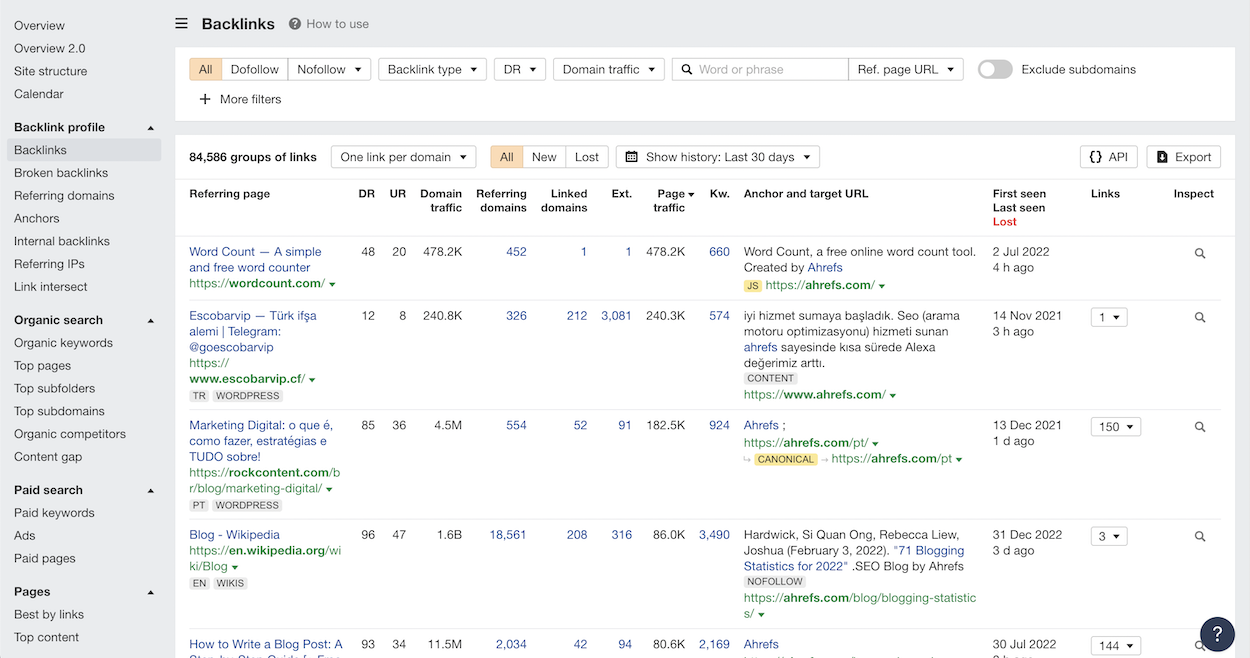
Neglecting backlink monitoring can lead to negative SEO consequences, such as a Google penalty or a drop in rankings. Therefore, it’s essential to regularly monitor your backlinks and ensure they are of high quality and relevant to your website’s content. It would help to disavow links from low-quality or spammy sites to protect your website’s reputation.
In summary, backlink monitoring should be essential to your SEO strategy. It helps you identify potential problems and take action to protect your website’s search engine rankings. So, ensure you regularly monitor your backlinks and take appropriate action to maintain the quality of your link profile.
How to Fix Your Link Building Mistakes
In conclusion, building backlinks is essential for the success of any digital marketing campaign. However, there are several common mistakes that business owners and digital marketing agencies must avoid in 2023. Whether building irrelevant links, neglecting backlink monitoring, or failing to develop and nurture relationships, each mistake can significantly impact your website’s search engine rankings and overall online visibility. By avoiding these mistakes and following best link building practices, you can ensure your website is well-positioned to compete in today’s digital landscape.
At The Content Hero, we offer professional link building services such as guest posting, and high-authority links tailored to your business’s unique needs. Our team of experts will work with you to create a customized link-building strategy to help you achieve your digital marketing goals. Contact us today to learn how we can help you improve your online visibility and drive more traffic to your website.

